
Introduction:
In the realm of human connections, relationships are the fabric of our lives, offering comfort, joy, and growth. However, not all relationships are created equal. While some flourish with love and support, others can become toxic, draining, and detrimental to our well-being. Understanding what constitutes a toxic relationship, identifying its signs, and knowing how to escape its grip is crucial for maintaining emotional health and happiness.
What is a Toxic Relationship?
A toxic relationship is characterized by behaviors, dynamics, and interactions that cause harm, distress, or imbalance to one or both parties involved. It often involves manipulation, control, disrespect, and a lack of empathy. In such relationships, individuals may feel trapped, suffocated, or constantly on edge.
Identifying Toxic Relationships
Identifying a toxic relationship can be challenging, especially when emotions are involved. However, there are key signs to watch out for:
- Constant Negativity: If the relationship is predominantly marked by criticism, judgment, or pessimism, it may be toxic.
- Lack of Respect: Mutual respect is essential in any healthy relationship. If one party consistently disregards the other’s feelings, boundaries, or autonomy, it’s a red flag.
- Manipulative Behavior: Manipulation can take various forms, including guilt-tripping, gaslighting, or coercion. These tactics undermine trust and erode self-esteem.
- Isolation: Toxic individuals may isolate their partners from friends, family, or support networks, making it harder to seek help or perspective.
- Constant Drama: If the relationship feels like a never-ending rollercoaster of drama, conflict, or chaos, it may be toxic.
Why Good Relationships Turn Toxic
Even the most promising relationships can sour over time. Several factors can contribute to this transformation:
- Unresolved Issues: Unaddressed conflicts or unresolved issues can fester and poison the relationship’s dynamics.
- Communication Breakdown: Effective communication is the cornerstone of healthy relationships. When communication breaks down, misunderstandings and resentments can thrive.
- Changing Dynamics: As individuals evolve, their needs, values, and priorities may shift. If these changes are not acknowledged or accommodated, friction can arise.
- External Stressors: External factors such as financial pressures, work stress, or family conflicts can strain even the strongest relationships.
Signs to Look Out For
Recognizing the signs of a toxic relationship is the first step toward reclaiming your well-being:
- Feeling Drained: If the relationship leaves you feeling emotionally, mentally, or physically drained, it may be toxic.
- Loss of Independence: Healthy relationships nurture individual growth and autonomy. If you feel suffocated or controlled, it’s a warning sign.
- Constant Conflict: While conflict is inevitable in any relationship, excessive or unresolved conflict can indicate deeper issues.
- Emotional Rollercoaster: If the relationship oscillates between extreme highs and lows, it may be emotionally destabilizing.
Escaping Toxic Relationships
Escaping a toxic relationship requires courage, support, and self-care. Here are some steps to consider:
- Acknowledge the Problem: Admitting that the relationship is toxic is the first and most crucial step.
- Seek Support: Reach out to trusted friends, family members, or a therapist for guidance and support.
- Set Boundaries: Establish clear boundaries to protect your well-being and assert your needs.
- Plan Your Exit: If possible, create a safety plan and strategize your exit strategy.
- Focus on Self-Care: Invest in self-care activities that nourish your mind, body, and soul.
- Seek Professional Help: Consider seeking the guidance of a therapist or counselor to navigate the healing process.
Conclusion
In the journey of life, relationships shape our experiences, growth, and happiness. While toxic relationships can be debilitating, they are not insurmountable. By recognizing the signs, seeking support, and prioritizing self-care, individuals can break free from toxic dynamics and cultivate healthier, more fulfilling connections.
click here to discover 7 effective strategies for coping with a break up.
Deep Heat - Muscle Massage Roll On Lotion, for Ease Muscle Tightness, 50 ml (Pack of 1)
£4.99 (as of March 23, 2024 20:37 GMT +00:00 - More infoProduct prices and availability are accurate as of the date/time indicated and are subject to change. Any price and availability information displayed on [relevant Amazon Site(s), as applicable] at the time of purchase will apply to the purchase of this product.)Puressentiel Muscles & Joints Roll-On 75ml – Providing fast Relief & Naturally Soothes Muscle Pain, Back Pain Relief, Neck Pain Relief & Shoulder Aches. Acupressure Massager & Muscle Rub
£8.90 (as of March 23, 2024 20:37 GMT +00:00 - More infoProduct prices and availability are accurate as of the date/time indicated and are subject to change. Any price and availability information displayed on [relevant Amazon Site(s), as applicable] at the time of purchase will apply to the purchase of this product.)Massage Oil for Warming, Relaxing,Joint Pain Relief Sensual Body Oil 10.2 fl.oz
£9.20 (as of March 23, 2024 20:37 GMT +00:00 - More infoProduct prices and availability are accurate as of the date/time indicated and are subject to change. Any price and availability information displayed on [relevant Amazon Site(s), as applicable] at the time of purchase will apply to the purchase of this product.)Nip + Fab Glycolic Acid Fix Face Scrub with Salicylic Acid, AHA/BHA Exfoliating Facial Cleanser Polish for Refining Pores Skin Brightening, 75 ml
£9.00 (as of March 23, 2024 20:37 GMT +00:00 - More infoProduct prices and availability are accurate as of the date/time indicated and are subject to change. Any price and availability information displayed on [relevant Amazon Site(s), as applicable] at the time of purchase will apply to the purchase of this product.)Ecodrop Frankincense Essential Oil I 10ml I Cosmos Certified Organic and 100% Pure Essential Oils I Top Therapeutic Grade for Aromatherapy I Use for Massage, Diffusers & Bath I Boswellia Serrata
£8.20 (as of March 23, 2024 20:37 GMT +00:00 - More infoProduct prices and availability are accurate as of the date/time indicated and are subject to change. Any price and availability information displayed on [relevant Amazon Site(s), as applicable] at the time of purchase will apply to the purchase of this product.)Aveeno Skin Renewal Gentle Body Scrub, Exfoliates & Visibly Renews Rough, Dry & Bumpy Skin, with Prebiotic Oat, Naturally Derived PHA & Niacinamide, Suitable for Dry Sensitive Skin, 200ml
£5.72 (as of March 23, 2024 20:37 GMT +00:00 - More infoProduct prices and availability are accurate as of the date/time indicated and are subject to change. Any price and availability information displayed on [relevant Amazon Site(s), as applicable] at the time of purchase will apply to the purchase of this product.)Pure World Natural Castor Oil 250ML Cold & Freshly Pressed 100% Pure and Undiluted Hexane Free Nourish Your Skin and Hair Eyebrows, Nails, Beard, Hair, Eyelash Growth Food Grade
£7.45 (as of March 23, 2024 20:37 GMT +00:00 - More infoProduct prices and availability are accurate as of the date/time indicated and are subject to change. Any price and availability information displayed on [relevant Amazon Site(s), as applicable] at the time of purchase will apply to the purchase of this product.)FlexiSEQ Gel, 50g, Drug-Free, for Joint Wear & Tear, Pain Relief Gel, (Packaging May Vary)
£11.89 (as of March 23, 2024 20:37 GMT +00:00 - More infoProduct prices and availability are accurate as of the date/time indicated and are subject to change. Any price and availability information displayed on [relevant Amazon Site(s), as applicable] at the time of purchase will apply to the purchase of this product.)SHCHME 2 PCS Castor Oil Pack, Reusable Castor Oil Pack Wrap Kit, Organic Castor Oil Pack for Liver Detox with Storage Bag for Aid Sleep Digestive Constipation (Oil Not Included) (Pink)
£8.32 (as of March 23, 2024 20:37 GMT +00:00 - More infoProduct prices and availability are accurate as of the date/time indicated and are subject to change. Any price and availability information displayed on [relevant Amazon Site(s), as applicable] at the time of purchase will apply to the purchase of this product.)Pernaton Green Lipped Mussel Gel for Joint Care, Natural Cooling Gel for Arthritis, Sciatica, Pain Relief Gel for Joints and Muscles with Original Perna Extract, 250ml, Packaging May Vary
£12.30 (as of March 23, 2024 20:37 GMT +00:00 - More infoProduct prices and availability are accurate as of the date/time indicated and are subject to change. Any price and availability information displayed on [relevant Amazon Site(s), as applicable] at the time of purchase will apply to the purchase of this product.)The Boy, The Mole, The Fox and The Horse
£9.00 (as of March 23, 2024 13:53 GMT +00:00 - More infoProduct prices and availability are accurate as of the date/time indicated and are subject to change. Any price and availability information displayed on [relevant Amazon Site(s), as applicable] at the time of purchase will apply to the purchase of this product.)The Book You Wish Your Parents Had Read (and Your Children Will Be Glad That You Did): THE #1 SUNDAY TIMES BESTSELLER
£9.36 (as of March 23, 2024 13:53 GMT +00:00 - More infoProduct prices and availability are accurate as of the date/time indicated and are subject to change. Any price and availability information displayed on [relevant Amazon Site(s), as applicable] at the time of purchase will apply to the purchase of this product.)Why Has Nobody Told Me This Before?: The No 1 Sunday Times Bestseller 2022
£8.00 (as of March 23, 2024 13:53 GMT +00:00 - More infoProduct prices and availability are accurate as of the date/time indicated and are subject to change. Any price and availability information displayed on [relevant Amazon Site(s), as applicable] at the time of purchase will apply to the purchase of this product.)Atomic Habits: An Easy and Proven Way to Build Good Habits and Break Bad Ones
£9.62 (as of March 23, 2024 13:53 GMT +00:00 - More infoProduct prices and availability are accurate as of the date/time indicated and are subject to change. Any price and availability information displayed on [relevant Amazon Site(s), as applicable] at the time of purchase will apply to the purchase of this product.)The Laws of Human Nature
£6.99 (as of March 23, 2024 13:53 GMT +00:00 - More infoProduct prices and availability are accurate as of the date/time indicated and are subject to change. Any price and availability information displayed on [relevant Amazon Site(s), as applicable] at the time of purchase will apply to the purchase of this product.)The Psychology of Money: Timeless lessons on wealth, greed, and happiness
£11.24 (as of March 23, 2024 13:53 GMT +00:00 - More infoProduct prices and availability are accurate as of the date/time indicated and are subject to change. Any price and availability information displayed on [relevant Amazon Site(s), as applicable] at the time of purchase will apply to the purchase of this product.)12 Rules for Life: An Antidote to Chaos
£10.49 (as of March 23, 2024 13:53 GMT +00:00 - More infoProduct prices and availability are accurate as of the date/time indicated and are subject to change. Any price and availability information displayed on [relevant Amazon Site(s), as applicable] at the time of purchase will apply to the purchase of this product.)Can't Hurt Me: Master Your Mind and Defy the Odds
£16.63 (as of March 23, 2024 13:53 GMT +00:00 - More infoProduct prices and availability are accurate as of the date/time indicated and are subject to change. Any price and availability information displayed on [relevant Amazon Site(s), as applicable] at the time of purchase will apply to the purchase of this product.)Don't Believe Everything You Think: Why Your Thinking Is The Beginning & End Of Suffering (Beyond Suffering Book 1)
£3.92 (as of March 23, 2024 13:53 GMT +00:00 - More infoProduct prices and availability are accurate as of the date/time indicated and are subject to change. Any price and availability information displayed on [relevant Amazon Site(s), as applicable] at the time of purchase will apply to the purchase of this product.)How to Wean Your Baby: The step-by-step plan to help your baby love their broccoli as much as their cake
£14.29 (as of March 23, 2024 13:53 GMT +00:00 - More infoProduct prices and availability are accurate as of the date/time indicated and are subject to change. Any price and availability information displayed on [relevant Amazon Site(s), as applicable] at the time of purchase will apply to the purchase of this product.)Vitabiotics Ultra Vitamin D Tablets 1000IU Optimum Level -96 count (Pack of 1)
£4.49 (as of March 23, 2024 13:53 GMT +00:00 - More infoProduct prices and availability are accurate as of the date/time indicated and are subject to change. Any price and availability information displayed on [relevant Amazon Site(s), as applicable] at the time of purchase will apply to the purchase of this product.)Organic Turmeric Capsules High Strength and Black Pepper with Active Curcumin with Ginger 1380mg - Advanced Tumeric - Each 120 Veg Capsule is Organic
£9.99 (as of March 23, 2024 13:53 GMT +00:00 - More infoProduct prices and availability are accurate as of the date/time indicated and are subject to change. Any price and availability information displayed on [relevant Amazon Site(s), as applicable] at the time of purchase will apply to the purchase of this product.)Natures Aid L-Lysine 1000 mg, High Potency Essential Amino Acid, Vegan, 60 Tablets
£8.95 (as of March 23, 2024 13:53 GMT +00:00 - More infoProduct prices and availability are accurate as of the date/time indicated and are subject to change. Any price and availability information displayed on [relevant Amazon Site(s), as applicable] at the time of purchase will apply to the purchase of this product.)Centrum Advance 50+ Tablets Multivitamin & Mineral Supplements, with 24 essential nutrients, including vitamin D, C, Zinc, 180 ct (Packaging and Tablet colour may vary slightly)
£13.28 (as of March 23, 2024 13:53 GMT +00:00 - More infoProduct prices and availability are accurate as of the date/time indicated and are subject to change. Any price and availability information displayed on [relevant Amazon Site(s), as applicable] at the time of purchase will apply to the purchase of this product.)Vitabiotics Ultra Vitamin D Tablets 2000IU Extra Strength - 96 Count ( Pack of 1)
£4.75 (as of March 23, 2024 13:53 GMT +00:00 - More infoProduct prices and availability are accurate as of the date/time indicated and are subject to change. Any price and availability information displayed on [relevant Amazon Site(s), as applicable] at the time of purchase will apply to the purchase of this product.)MacuShield Original Plus Capsules - 90 Day Pack, Eye Health Food Supplement containing Lutein, Zeaxanthin and Meso-Zeaxanthin, as Well as Vitamin B2 which Supports Normal Vision
£22.99 (as of March 23, 2024 13:53 GMT +00:00 - More infoProduct prices and availability are accurate as of the date/time indicated and are subject to change. Any price and availability information displayed on [relevant Amazon Site(s), as applicable] at the time of purchase will apply to the purchase of this product.)BetterYou Vitamin D 3000 IU Daily Oral Spray, Pill-free Vitamin D3 Supplement, Supports Bones, Teeth and a Healthy Immune System, 3-month Supply, Made in the UK, Natural Peppermint Flavour
£6.28 (as of March 23, 2024 13:53 GMT +00:00 - More infoProduct prices and availability are accurate as of the date/time indicated and are subject to change. Any price and availability information displayed on [relevant Amazon Site(s), as applicable] at the time of purchase will apply to the purchase of this product.)Feroglobin Iron Capsule Helps to reduce tiredness and fatigue
£3.98 (as of March 23, 2024 13:53 GMT +00:00 - More infoProduct prices and availability are accurate as of the date/time indicated and are subject to change. Any price and availability information displayed on [relevant Amazon Site(s), as applicable] at the time of purchase will apply to the purchase of this product.)Vitabiotics Ultra Magnesium Tablets, Pack of 60
£5.99 (as of March 23, 2024 13:53 GMT +00:00 - More infoProduct prices and availability are accurate as of the date/time indicated and are subject to change. Any price and availability information displayed on [relevant Amazon Site(s), as applicable] at the time of purchase will apply to the purchase of this product.)Magnesium Glycinate 3-in-1 Complex - 1800mg Supplements as Bisglycinate, Citrate & Malate 90 Vegan Capsules, Triple High Absorption 384mg Elemental, UK Made
£9.99 (as of March 23, 2024 13:53 GMT +00:00 - More infoProduct prices and availability are accurate as of the date/time indicated and are subject to change. Any price and availability information displayed on [relevant Amazon Site(s), as applicable] at the time of purchase will apply to the purchase of this product.)Manifesto: A radically honest and inspirational memoir from the Booker Prize winning author of Girl, Woman, Other
£0.99 (as of March 23, 2024 13:53 GMT +00:00 - More infoProduct prices and availability are accurate as of the date/time indicated and are subject to change. Any price and availability information displayed on [relevant Amazon Site(s), as applicable] at the time of purchase will apply to the purchase of this product.)There's a Dinosaur in Your Book (Who's in Your Book?, 21)
£4.00 (as of March 23, 2024 13:53 GMT +00:00 - More infoProduct prices and availability are accurate as of the date/time indicated and are subject to change. Any price and availability information displayed on [relevant Amazon Site(s), as applicable] at the time of purchase will apply to the purchase of this product.)The Power of Now: A Guide to Spiritual Enlightenment
£14.00 (as of March 23, 2024 13:53 GMT +00:00 - More infoProduct prices and availability are accurate as of the date/time indicated and are subject to change. Any price and availability information displayed on [relevant Amazon Site(s), as applicable] at the time of purchase will apply to the purchase of this product.)Don't Believe Everything You Think: Why Your Thinking Is The Beginning & End Of Suffering (Beyond Suffering Book 1)
£3.92 (as of March 23, 2024 13:53 GMT +00:00 - More infoProduct prices and availability are accurate as of the date/time indicated and are subject to change. Any price and availability information displayed on [relevant Amazon Site(s), as applicable] at the time of purchase will apply to the purchase of this product.)Scattered Minds: The Origins and Healing of Attention Deficit Disorder
£0.99 (as of March 23, 2024 13:53 GMT +00:00 - More infoProduct prices and availability are accurate as of the date/time indicated and are subject to change. Any price and availability information displayed on [relevant Amazon Site(s), as applicable] at the time of purchase will apply to the purchase of this product.)The Boy, The Mole, The Fox and The Horse
£9.00 (as of March 23, 2024 13:53 GMT +00:00 - More infoProduct prices and availability are accurate as of the date/time indicated and are subject to change. Any price and availability information displayed on [relevant Amazon Site(s), as applicable] at the time of purchase will apply to the purchase of this product.)There's No Such Thing As 'Naughty': The groundbreaking guide for parents with children aged 0-5: THE #1 SUNDAY TIMES BESTSELLER
£10.19 (as of March 23, 2024 13:53 GMT +00:00 - More infoProduct prices and availability are accurate as of the date/time indicated and are subject to change. Any price and availability information displayed on [relevant Amazon Site(s), as applicable] at the time of purchase will apply to the purchase of this product.)Can't Hurt Me: Master Your Mind and Defy the Odds
£16.63 (as of March 23, 2024 13:53 GMT +00:00 - More infoProduct prices and availability are accurate as of the date/time indicated and are subject to change. Any price and availability information displayed on [relevant Amazon Site(s), as applicable] at the time of purchase will apply to the purchase of this product.)The Subtle Art of Not Giving a F*ck: A Counterintuitive Approach to Living a Good Life
£11.38 (as of March 23, 2024 13:53 GMT +00:00 - More infoProduct prices and availability are accurate as of the date/time indicated and are subject to change. Any price and availability information displayed on [relevant Amazon Site(s), as applicable] at the time of purchase will apply to the purchase of this product.)The Self-Sufficiency Garden: Feed Your Family and Save Money: THE #1 SUNDAY TIMES BESTSELLER
£13.84 (as of March 23, 2024 13:53 GMT +00:00 - More infoProduct prices and availability are accurate as of the date/time indicated and are subject to change. Any price and availability information displayed on [relevant Amazon Site(s), as applicable] at the time of purchase will apply to the purchase of this product.)Please consider subscribing to our monthly newsletter











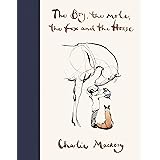


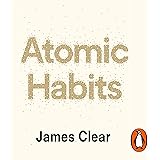

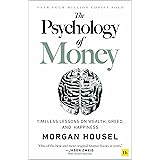















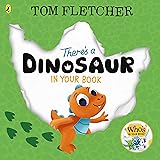

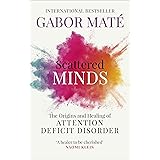

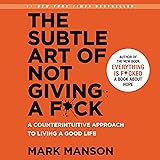

Pingback: How to be a better partner in a relationship